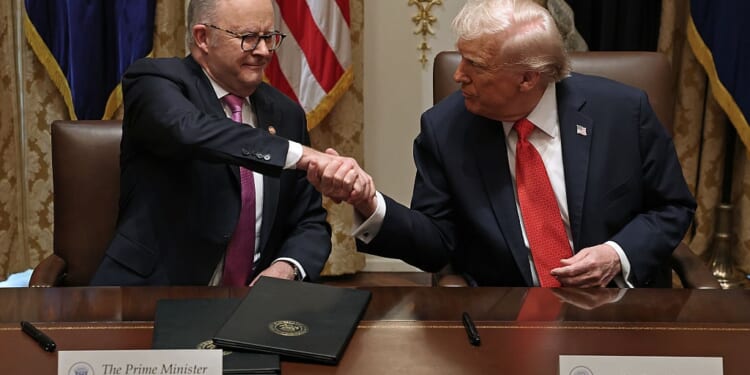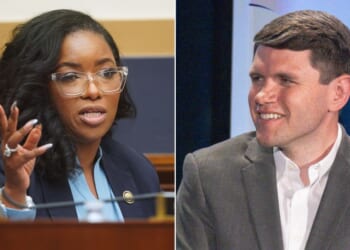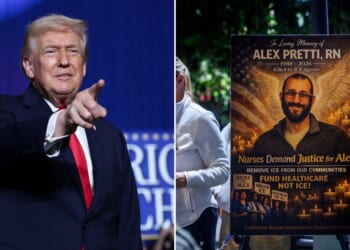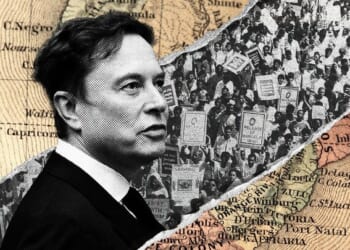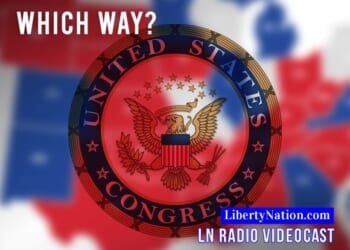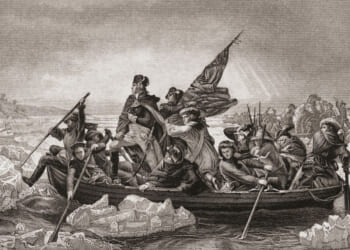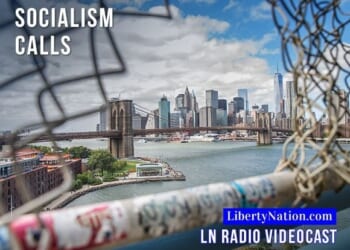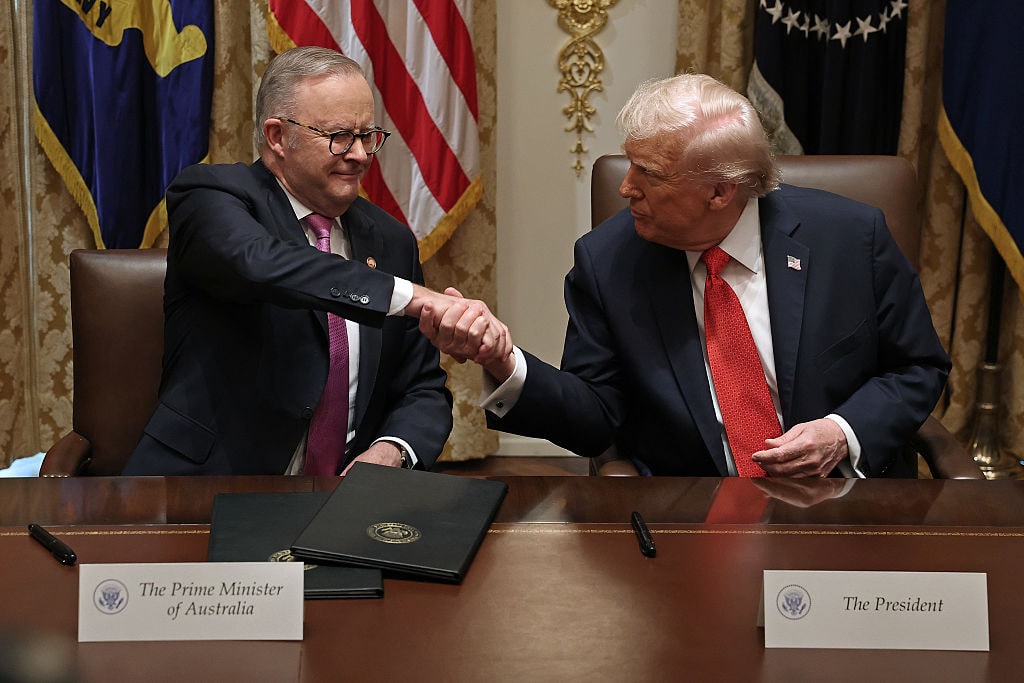
The two allies will invest $1b in projects to boost Australia’s processing.
President Donald Trump on Monday signed an $8.5 billion critical minerals deal with Australian Prime Minister Anthony Albanese, topping a string of foreign policy successes in recent weeks. The framework provides for the U.S. to reduce its reliance on China, which produces more than 60% of the world’s rare earth minerals and accounts for more than 90% of rare earth processing worldwide.
“In about a year from now, we’ll have so much critical mineral and rare earths that you won’t know what to do with them. They’ll be worth about $2,” Trump said.
“This is an $8.5 billion pipeline that we have ready to go,” Albanese said. Both the United States and Australia would contribute $1 billion to projects in each of the country to accelerate the supply of critical and rare-earth minerals to buyers in the US and Australia.
This deal would also boost Australia’s place as the world’s second-largest producer of rare earth minerals. The prime minister laid out three groups of projects provided by the framework.
“Ones that are joint activities between Australia and the United States such as Alcoa. Secondly, [are] projects that will be US investment that the US will undertake in Australia including processing, and then ones that Australia will undertake,” Albanese said. “Australia has had a view for some time. It’s similar to putting America first. Our plan is called “A Future Made in Australia” which is about not just digging things up and exporting them but how do we make sure that we have across the supply chains with our friends being able to benefit, seize those opportunities. So, we certainly see part of what this is about isn’t just digging things up. It’s also about processing including the joint ventures between Australia and the United States.”
The framework comes a week and a half after China announced widespread export controls of rare earth minerals and processing technologies, which are set to take effect on December 1, 2025. The deal also comes ahead of Trump’s meeting with Chinese regime leader Xi Jinping at the end of the month at the Asia-Pacific Economic Cooperation (APEC) summit in South Korea. China is already paying 55% in tariffs to the US. Absent a deal by November 1, those tariffs will jump to 155% tariffs.
“I believe that they’re in big trouble. And I don’t want them to be in big trouble,” the president said. “I want them to do great. I want them to thrive. But we have to thrive together. It’s a two-way street. I think when we finish our meetings — and it’s going to be a big deal.”
Affirming AUKUS
President Trump also affirmed the trilateral AUKUS deal, struck between the US, the United Kingdom, and Australia under the Biden administration. The president said he would expedite the sale of nuclear-powered submarines to Australia, pursuant to the defense pact.
When asked by a reporter whether the AUKUS agreement would deter China, Trump said it would, but that the US wouldn’t need it.
“First of all, the United States is the strongest military power in the world by far. It’s not even close,” Trump said. “We have the best equipment, we have the best of everything, and nobody’s going to mess with that. And I don’t see that at all with President Xi. I think we’re going to get along very well as it pertains to Taiwan and others. Now, that doesn’t mean it’s not the apple of his eye, because probably it is, but I don’t see anything happening.”
The two leaders exchanged praise, big smiles, and generous compliments. The prime minister joked about using Trump’s praise in his ads. They waxed nostalgic about wars the allies fought together for freedom. Albanese joked about Trump coming to Australia for “the President’s Cup: “We’ll organize it at a time suitable for you, Mr. President,” he said.
Trump’s Tariffs a Tricky Turn
Still, Trump’s tariffs have strained the relationship between the two allies. This was evident in questions from the Australian press about their opposing policy positions and the levying of tariffs on “friends,” echoing Albanese’s lament when Trump announced the tariffs.
“We do in many cases, because we’ve been treated unfairly. But actually, the tariffs are very light,” Trump said.
Australia pays among the lowest tariffs, Trump said. He tied tariffs to the peace deals he has brokered in the last eight months.
“It’s an amazing thing, the power of tariffs in terms of our country,” Trump said. “But tariffs have always been used against us. We never used them against anywhere else, and now you have a president that for national security reasons, and other reasons, is using them, and we’ve become a very rich nation again. But we’ve also become a nation that used that power of tariffs, and the power of trade, to settle five of the eight wars that I said I settled eight. I’m very proud of that. Nobody else has settled one.”
Some in the media have criticized the president’s recent heavy focus on foreign policy. Monday’s deal comes on the heels of Trump brokering the return of Israeli hostages and a ceasefire between Israel and the terrorist group Hamas in Gaza, hosting Ukrainian President Volodymyr Zelenskyy and speaking with Russian President Vladimir Putin. But, President Trump understands, likely more than anyone, how his string of foreign policy successes and foreign investments bolster America’s economy in the near and long-term. The US-Australian framework will reduce U.S. reliance on China, strengthen American supply of critical minerals for everything from cars to medical equipment to defense, and break China’s stranglehold on the global supply chain and processing capacity. This, as President Trump works to cut the red tape, and stand up America’s critical minerals mining in the long term.
Liberty Nation does not endorse candidates, campaigns, or legislation, and this presentation is no endorsement.

